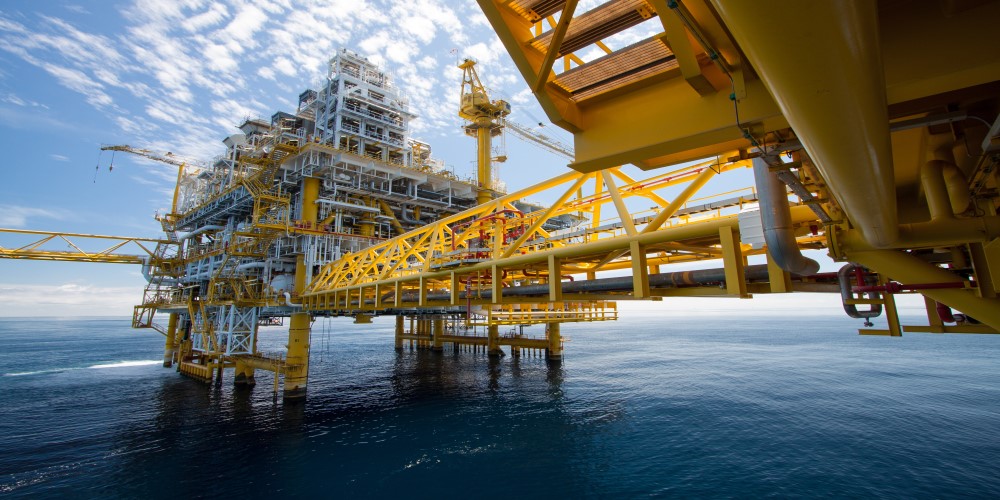Alwaght- Since the early 2000s, the Qatari leaders have been struggling to improve their tiny country’s regional position. However, being devoid of the elements of power, Doha officials had no other way but resorting to their single power tool: their huge energy resources.
The enormous energy reserves gradually cast a shadow on the geopolitics of Qatar, pushing Doha to play unusual foreign policy which is quite inconsistent to its real potentials. This Persian Gulf Arab country’s gas reserves, being the third-largest in the world, directly determine its domestic and foreign policy.
The domestic policy of this country, the analysts suggest, follows a socio-political pattern characteristic of a rentier state. Big gas sales revenues have concentrated the power in the hands of Al Thani family. The ruling family's relation with the Qatari citizens is based on a give-and-take deal in which the government takes the political rule and gives financial interests to them in return.
The foreign policy is shaped by a set of factors such as financial power coming from gas sales, huge investments, mediatory efforts, supplying foreign aids, and mobilizing the national resources to support the executive rules.
Qatar is dependent on the US when it comes to provision of the national security. But it takes advantage of its energy cooperation with other actors to get its arms from them, a step taken largely to avoid full dependence on Washington. For instance, in April 2015, Doha signed a deal with Paris according to which the latter will deliver 24 Dassault Rafale fighter jets to Qatar for over $6 billion.
The small Arab monarchy hosts two key US military bases in the region. In 2014, Doha finalized a deal to buy $11 billion worth of different military equipment from the US. Qatar leaders also apply energy policies in a bid to establish strategic ties and reinforce their independence and choose an appropriate security platform for their country. The liquid gas exportation has transformed Qatar into a leading supplier of this energy to its customers. This has been quite noticeable particularly after gas deals began working on long-term contacting system.
In recent years Britain has become a major purchaser of Qatari gas. As of 2011, Qatar provided 52 percent of the British gas, showing a 11-percent rise in comparison to 2009. Other countries also get huge Qatari gas supplies, including China, Japan, and India. This means that these countries contribute to Qatar stability as they seek saving their own energy resources.
The changing economic patterns that led to increased energy demand in Asia have triggered Qatar's tendency to the Easten energy markets. In 2009, Qatar completed a 25-year gas deal with China. It makes Doha the largest supplier of LNG (Liquefied Natural Gas) to Beijing. Expansion of capacity of Australian LNG exports as well as start of the US “shale gas revolution” that saw reduced US reliance to energy imports in 2011 diverted the Qatari gas resources– which were meant to address the American market– to the Asian markets. Other Asian countries headed to Qatar for long-term gas contracts. In 2011 and 2012 South Korea, Taiwan, and Japan signed deals with Qatar for LNG supplies.
The challenges raised from Australia gas industry development that aims at overtaking Qatar by 2018 as well as the potential gas price dropping as a result of shale gas discovery in the US can negatively affect Doha future incomes.
Despite all these, Qatar and its population are not large enough to allow effective foreign decisions. The foreign policy’s limited structure may allow for speedy decisions but they at the same time hinder their implementation. Being a small nation in a volatile region, Qatar struggles to protect itself and show off as a constructive and influential country on the global stage using its energy capacity. Since the 1990s, Doha officials have mediated in an array of conflicts such as Darfur, Ethiopia, Lebanon, Somalia, Palestine, Yemen, Western Sahara, Afghanistan, and Indonesia, trying to broker deals with the West. Such a feature gives Qatar a balanced role between actors with strong antipathy like the US and Iran as well as the Israeli regime and Hamas in Gaza Strip.
Still another power arm of Qatar is its Aljazeera news network which represents a powerful mechanism for soft power demonstration. After launching in 1996, the network transformed the outlook of Arab media, turning into a key media actor in West Asia region. Whereas Doha officials insist that Aljazeera is independent, the analysts argue that the network’s agenda is not separate from that of the government’s foreign policy. Aljazeera never spent focus on the foreign issues but instead it brought in spotlight the regional developments. This policy has had glaringly apparent influence on the public opinion during the developments in Syria, Egypt, and also Libya.
Domestically, the Qatari leaders offer economic giveaways to nip in the bud any voices demanding reforms. In September 2011, the rulers raised the state and military employees' salaries respectively 60 and 120 percent.
Doha also had hand in joint efforts to prevent the sweeping Arab uprisings from hitting the Persian Gulf states. Concerns over anti-regime popular protests in Bahrain and potentially in Oman moved the Persian Gulf countries to promise $20 billion in aid package to the two countries.
Doha has been using energy and media instruments both domestically and regionally, however, lack of other power elements have kept Doha from upgrading its acting levels. The country’s policies proved negative when it came to influencing the democracy-seeking developments both at home and in the region in past decade. The negativity of Qatar's policy is noticeable inside the country as the government steered clear of any political change, and in the region as Doha leaders sided with the overbearing powers and intervened in other countries' domestic affairs.



























